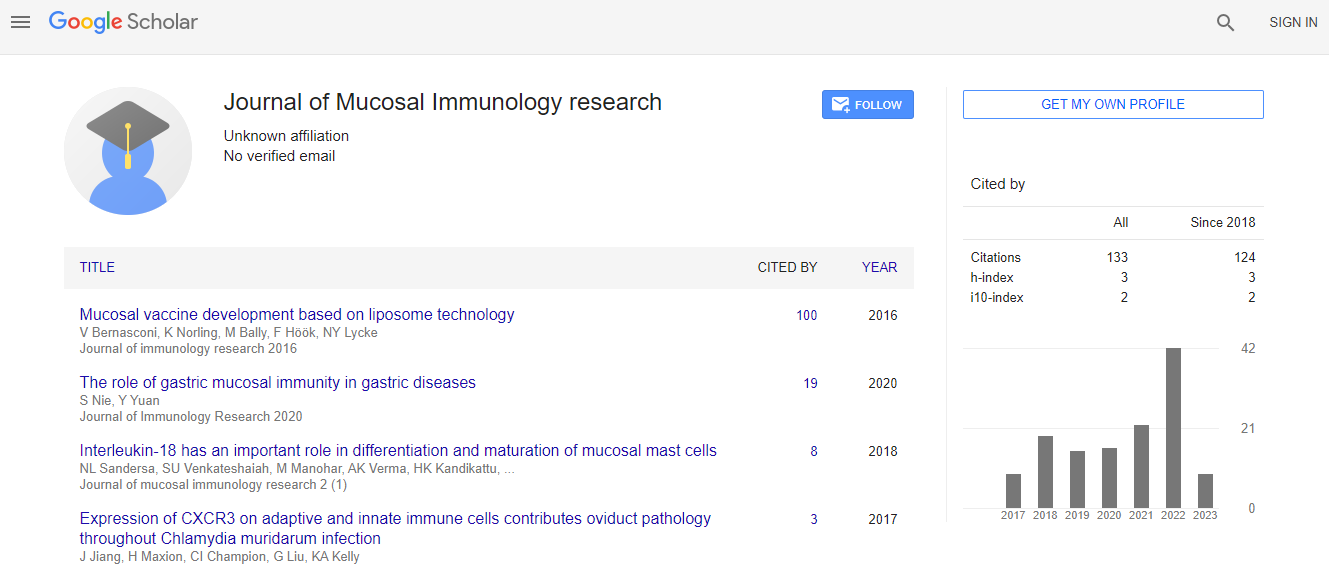Our Group organises 3000+ Global Conferenceseries Events every year across USA, Europe & Asia with support from 1000 more scientific Societies and Publishes 700+ Open Access Journals which contains over 50000 eminent personalities, reputed scientists as editorial board members.
Open Access Journals gaining more Readers and Citations
700 Journals and 15,000,000 Readers Each Journal is getting 25,000+ Readers
Google Scholar citation report
Citations : 169
Journal of Mucosal Immunology Research received 169 citations as per Google Scholar report
Journal of Mucosal Immunology Research peer review process verified at publons
Indexed In
- Google Scholar
- Publons
- ICMJE
Useful Links
Recommended Journals
Related Subjects
Share This Page
Fawzi Aoudjit

Fawzi Aoudjit
Professor
Department of Microbiology-Immunology
Laval University
Canada
Biography
Fawzi Aoudjit is a professor in the department of Microbiology-Immunology; Faculty of Medicine at Laval University (Québec, Canada). He attended Laval University in Quebec, where he received a PhD in Molecular Endocrinology and Physiology (1996). Dr Aoudjit completed two post-doctoral fellowships at the Institute Armand-Frappier in Montréal and at the Burnham Institute in La Jolla California, after which he was appointed as an assistant professor at Laval University in Quebec (2001). He received several awards and was a recipient of the Canadian Institutes of Health Research (CIHR) New Investigator Award in 2004. His research is continuously being funded from various National funding organisms such as the CHIR, the Natural Sciences and Engineering Research Council of Canada and the Arthritis Society of Canada. His research interests include basic immunology, immune cell signalling, apoptosis, autoimmune diseases, and hemato-oncology and cancer immunology. Dr Aoudjit research currently focuses on how the extracellular matrix shapes T cell responses and influence cell survival in autoimmune diseases and in cancer. He graduated several graduate students and postdoctoral fellows, and is a member of various grant/fellowships peer review committees in Canada and abroad, and reviewer for multiple scientific journals.

 Spanish
Spanish  Chinese
Chinese  Russian
Russian  German
German  French
French  Japanese
Japanese  Portuguese
Portuguese  Hindi
Hindi 
